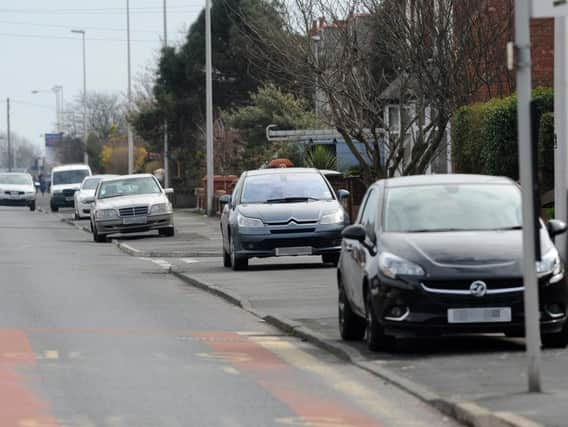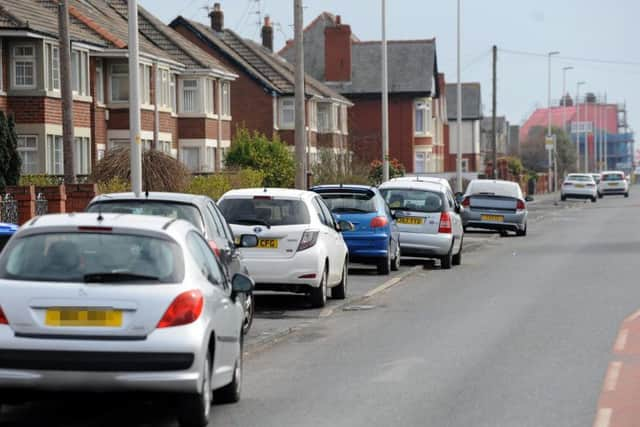Blackpool drivers could be facing fines for pavement parking


But as long as motorised transport stuck to the roads, the boundaries were clear.
However narrow residential streets coupled with the rise in car ownership means rows of vehicles parked partially over the kerb in many parts of Blackpool and the Fylde coast is now the norm.
Advertisement
Hide AdAdvertisement
Hide AdOn St Annes Road in South Shore vehicles now regularly park fully on the pavement.


So it will come as a shock to many car-owners to learn the government is considering tougher measures to crack down on pavement parking.
It has been revealed the Department for Transport is considering new laws which could bring with them a £70 fine.
Since 1974, it has been illegal to park on the pavement in London, but not elsewhere in the country.
Advertisement
Hide AdAdvertisement
Hide AdAs well as causing an obstruction, the practice also damages kerbs creating hefty repair bills for cash-strapped councils.


One group which has called strongly for stricter measures is the Royal National Institute of Blind People (RNIB).
Campaigner Carole Holmes, of Balham Avenue, South Shore, says she has often had to walk on the road with her guide dog due to pavements being blocked by vehicles, while bruises suffered from wing mirrors is a regular hazard.
She said: “I can walk round London without any problems because there it is the law not to park on the pavement. But here it is a real problem.
Advertisement
Hide AdAdvertisement
Hide Ad“Cars are bigger than they used to be. So while in the past it was just two wheels on the pavement, now some people are putting half the car on. I’ve also been out with my dog and had a car drive right in front of me onto the pavement.
“It’s not just blind people who are affected, it’s also mums with prams and people in wheelchairs.
“Often cars are parked over dropped kerbs so people have to go a long distance out of their way to cross a road.
“I believe pavements are for pedestrians, roads are for cars.”
Advertisement
Hide AdAdvertisement
Hide AdLast year Carole took her local PCSOs (police community support officers) and Zoe Foster, Guide Dog Engagement Officer, on a walk round organised by the South Shore Community Partnership to demonstrate the difficulties people face.
Brian Coope, of the South Shore Community Partnership, said: “While I agree that in some cases it is unavoidable to park on pavements, it is not excusable in my opinion to park irresponsibly.
“I see drivers every day who seem to try very hard to get all four wheels on the pavement.
“This kind of attitude makes it impossible for prams, disabled vehicles and blind folk to pass without putting themselves in danger by having to go onto the roads.”
Advertisement
Hide AdAdvertisement
Hide AdTerry Godbert, chairman of the Blackpool and Fylde Advanced Motoring group (BAFAM) said the fine would be welcome.
He said: “They shouldn’t park on pavements and as far as I’m concerned the fine could be as high as it gets.
“It’s particularly a problem when people park half a car on the pavement and force pedestrians to walk on the road, which is even more dangerous.
“It’s dangerous for mums pushing prams, for elderly people who struggle to walk or, even worse, for blind who rightly expect the pavements to be for pedestrians.”
Advertisement
Hide AdAdvertisement
Hide AdAmanda Stretton, motoring editor at Confused.com, said: “While drivers in London are up to speed with refraining from leaving a wheel or two on the kerb, this ban will have a huge impact on drivers across the rest of the country.
“It’s incredibly important that street sides are clear to prevent any obstacles for pedestrians, but councils must recognise that parking is already a struggle for most drivers due to the lack of available spaces.”